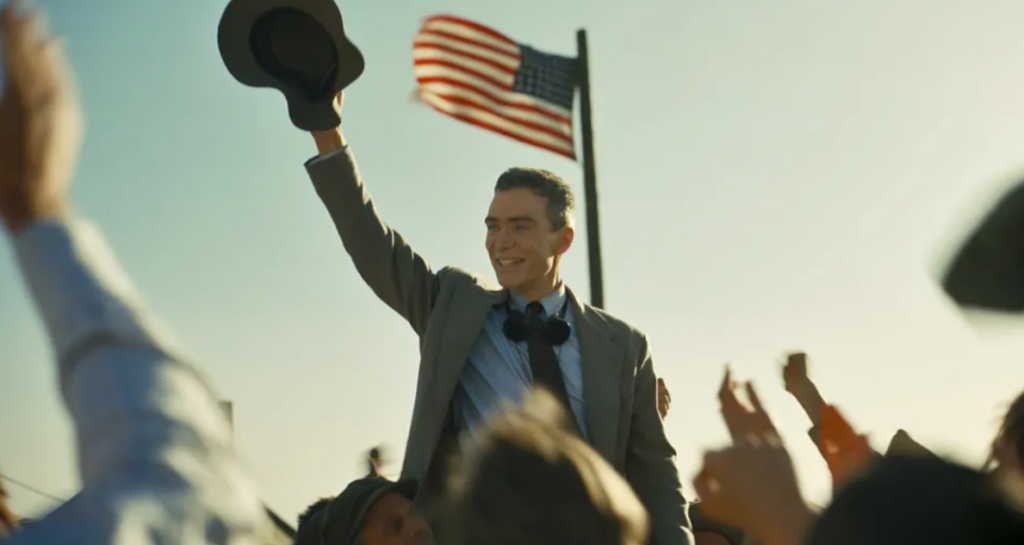After making his name battling zombies in 28 Days Later and ruling a ruthless gang in Peaky Blinders, Cillian Murphy has now been recognised as a Hollywood heavyweight after winning his first Oscar for playing the father of the atomic bomb in Oppenheimer.
As an actor with a serious reputation and a serious talent, it was refreshing that the first thing to come out of Murphy’s mouth when he went on stage to accept his best actor statuette was a joyful laugh.
Not someone usually given to public displays of emotion, it was clear how much winning an Oscar meant.
He may have been the frontrunner to win throughout awards season, but he was still “a little overwhelmed” to have the Oscar in his hand, he told the audience.
Declaring himself “a very proud Irishman” – the first Irish-born star to win best actor at the Oscars, in fact – he did then get serious.
Clearly conscious of his winning role as J Robert Oppenheimer, the US theoretical physicist whose work gave humanity the potential for nuclear annihilation, he dedicated the award to “the peacemakers everywhere”.
As ITV’s Oscars night host Jonathan Ross said, it was “nice for him to use that moment to point out that we are living in a world which is forever changed by what that film’s about”.
Ross added: “That’s one of the problems I had with the film, that it sort of lionised that man without really forcing the audience to look at what he’d done, even though he was going through that anguish.”
Although the early part of the film focuses on the creation and development of the atomic bomb, the last hour sees Oppenheimer grappling with what he’s done, as he comes to terms with the many lives lost as a result of his work.
“This is actually a very human story,” Murphy told BBC culture editor Katie Razzall last month.
“And if you think about the sort of dilemmas they were wrestling with at the time, they are the biggest, most profound, most paradoxical, most important kind of moral dilemmas that we’re still wrestling with as a race and as the world.”

